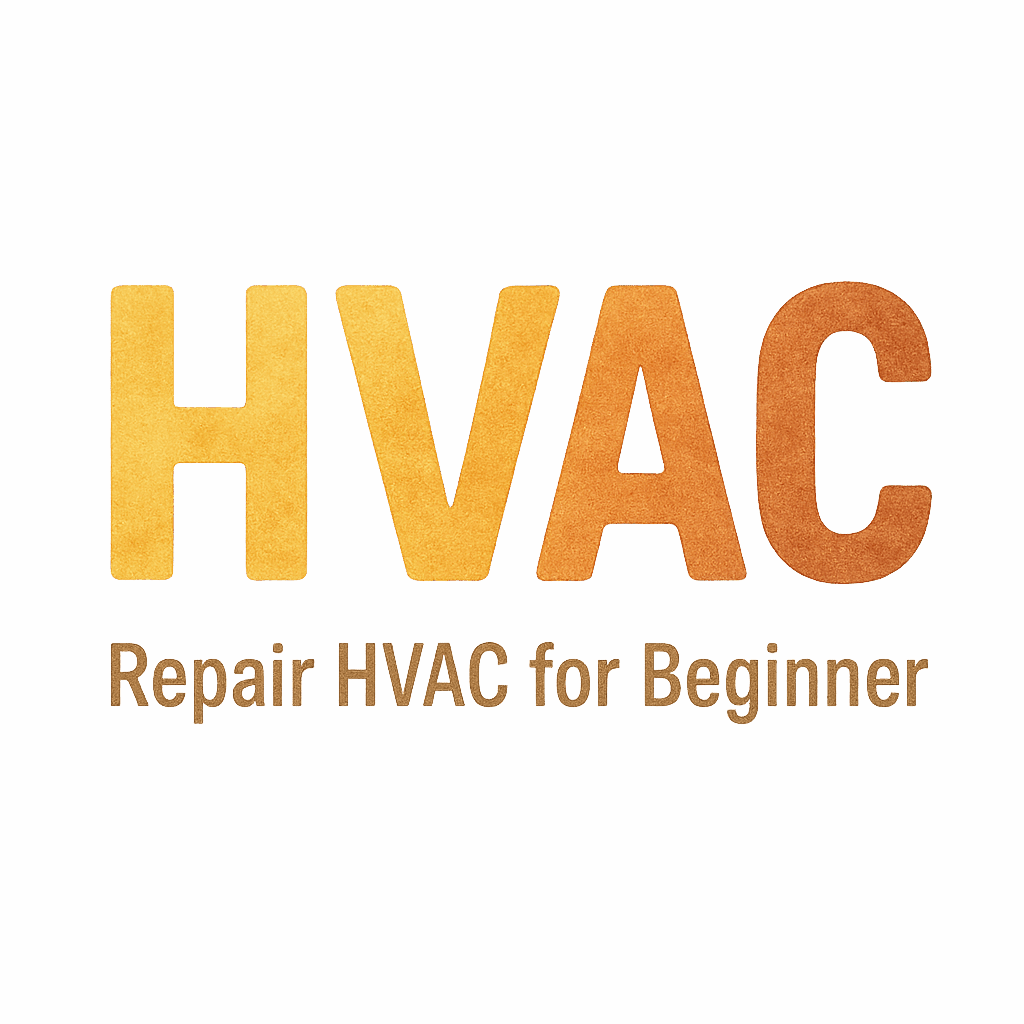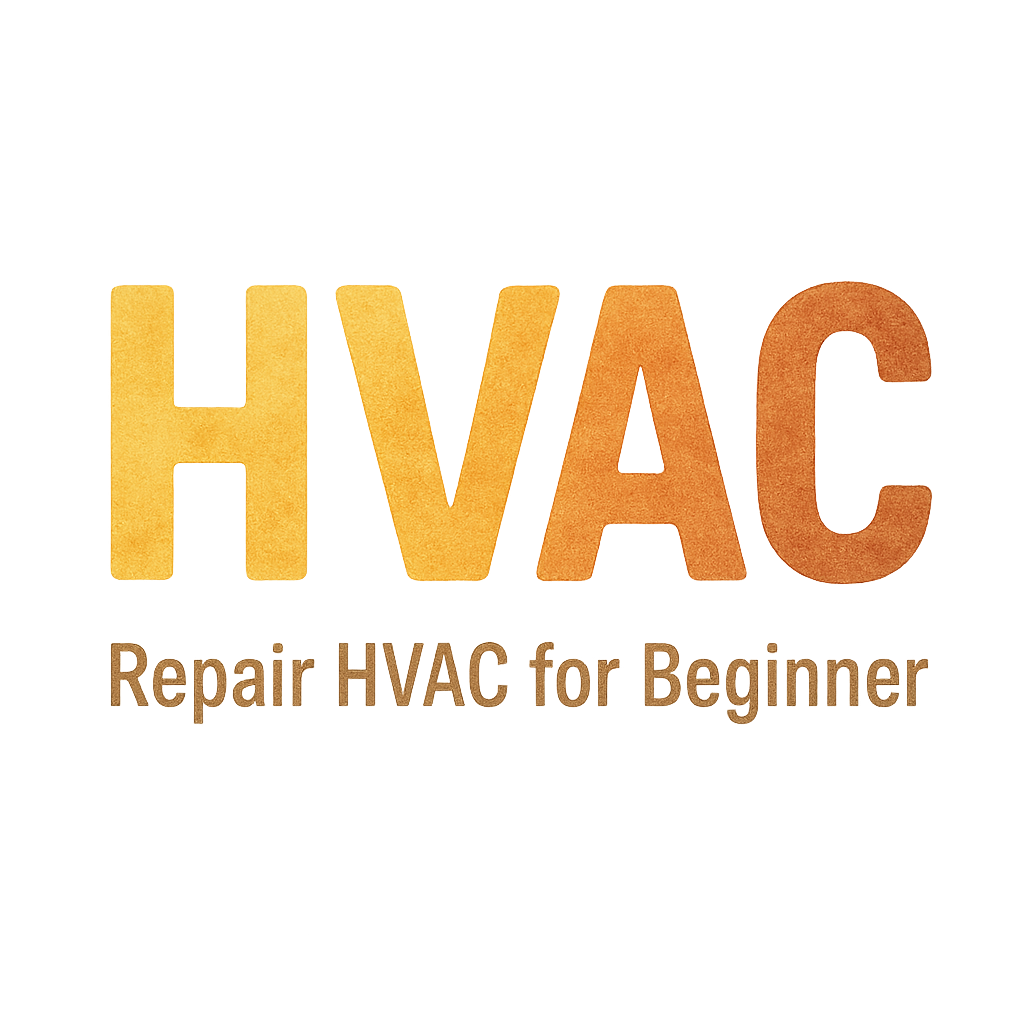The Growing Demand for HVAC Skills
In today’s rapidly evolving world, the demand for HVAC (Heating, Ventilation, and Air Conditioning) repair skills has surged. As our dependency on HVAC systems increases, so does the need for skilled professionals who can maintain, repair, and upgrade these essential systems. Learning HVAC repair isn’t just a smart career move; it’s an investment in a future-proof skillset that offers numerous benefits.
For anyone looking to dive deeper into the basics of HVAC systems, HVAC Basics for Beginners is a great starting point.

Why Learning HVAC Repair Skills is Essential Today
The HVAC industry has consistently proven to be a stable and thriving sector. With more people moving to homes that rely heavily on modern HVAC systems, and businesses also depending on these technologies, learning how to repair HVAC systems places you at the intersection of a highly lucrative and crucial field. Let’s dive into the 10 key benefits of acquiring HVAC repair skills.
1. Financial Gains from HVAC Repair Skills
The Salary Potential in HVAC Repair
One of the most significant advantages of learning HVAC repair skills is the potential to earn a solid income. HVAC technicians earn competitive wages due to the high demand for their skills. As per recent industry data, the average salary for an HVAC technician ranges between $45,000 to $70,000 per year, depending on experience and location. Skilled technicians with years of expertise, especially those specializing in specific systems, can earn even more.
If you’re interested in learning more about how HVAC repair can boost your earnings, take a look at our HVAC System Diagnosis page.
The demand for HVAC services is on the rise, so technicians can expect to see steady work, further increasing their earning potential. Moreover, by mastering HVAC repair, you also have the opportunity to start your own business, which can exponentially increase your income.
2. Job Security
HVAC Repair as an In-Demand Skill
Unlike other professions that may be impacted by economic downturns or technological advancements, the need for HVAC technicians remains constant. HVAC systems are integral to modern living, and they need regular maintenance and repair. In fact, the HVAC repair industry is projected to grow by 13% over the next decade, much faster than average.
For more insights on how to maintain a competitive edge in this growing industry, visit HVAC Maintenance.
This means that skilled HVAC technicians will have an excellent job outlook, offering job security and long-term career stability. HVAC repair technicians are also essential in emergency situations, such as during extreme weather events, further boosting their importance in today’s world.
3. Flexibility in Work
H3: Options to Work as a Freelancer or Full-Time
With HVAC repair skills, the flexibility to choose your work style is a significant benefit. If you prefer more freedom, you can work as a freelancer, choosing your own hours, locations, and types of projects. For those who prefer structure, there are plenty of opportunities for full-time positions with established companies or as a contractor.
For tips on how to get started with your HVAC career, visit our HVAC Tools & Equipment page.
The versatility of the HVAC field allows you to pursue a career path that suits your lifestyle. Whether you’re interested in working on residential homes, large commercial buildings, or industrial facilities, HVAC repair skills give you the freedom to specialize in a variety of work environments.
4. Empower Yourself with DIY Skills
Avoid Costly Professional Repairs
Learning HVAC repair skills empowers you to solve common problems in your own home. Rather than waiting for a technician to show up, you can troubleshoot and repair minor issues with your HVAC system on your own. This can save you money and time, especially when small fixes can prevent more significant, costly repairs down the line.
For more on DIY HVAC maintenance, check out our article on HVAC Troubleshooting & Repair.
From cleaning air filters to fixing thermostat issues, mastering basic HVAC repairs helps you avoid unnecessary service calls and keep your system running smoothly.
5. Increasing Your Knowledge
Troubleshooting and Diagnosing HVAC Problems
As you dive deeper into HVAC repair, you’ll gain a comprehensive understanding of how HVAC systems work. You’ll learn to diagnose and troubleshoot a wide variety of issues, from refrigerant leaks to compressor failures. This level of expertise not only makes you a valuable asset but also boosts your confidence in tackling complex problems.
For additional information on diagnostic strategies, visit HVAC System Diagnosis.
The more you learn, the more effective you’ll become in pinpointing and solving HVAC problems quickly and accurately, which is essential for efficiency and customer satisfaction.
6. Access to a Variety of Work Environments
Diverse Projects and Job Opportunities
The HVAC industry offers a wide range of opportunities in various environments. Whether you’re working in residential homes, commercial buildings, hospitals, schools, or industrial factories, your HVAC repair skills are highly transferable. You’ll have the chance to work in different industries and environments, each presenting new challenges and experiences.
For tips on specific HVAC environments, check out our HVAC Maintenance page.
This variety can make your career more exciting and engaging, as you encounter different types of HVAC systems and clients. No two projects are the same, keeping your work dynamic and ever-evolving.
7. Become a Lifesaver in Emergencies
Saving Lives and Property During Extreme Weather
HVAC repair technicians are often needed during emergencies, such as power outages, heatwaves, and cold fronts. Having HVAC repair skills means you can play a crucial role in ensuring people’s safety and comfort during these times. Whether it’s fixing a broken furnace during a winter storm or repairing an air conditioning unit during a heatwave, your skills could make a life-saving difference.
Explore safety and emergency protocols on our Repair Safely page.
In addition to safeguarding people’s health and comfort, you’ll also be helping prevent damage to property, such as frozen pipes or mold caused by improper ventilation.
8. Environmental Impact
Implementing Energy-Efficient Solutions
With HVAC systems being responsible for a large portion of energy consumption in homes and buildings, learning how to repair and maintain these systems means you can make a positive environmental impact. By diagnosing issues that waste energy, such as malfunctioning thermostats or leaking ducts, you can help clients reduce their energy bills and lower their carbon footprint.
To dive deeper into energy-efficient HVAC solutions, visit Monthly HVAC Care.
Moreover, staying updated on the latest green technologies, like energy-efficient air conditioners and heating systems, allows you to provide eco-friendly solutions that contribute to a sustainable future.
9. Work with Cutting-Edge Technology
Embrace New Trends in HVAC Technology
The HVAC industry is continuously evolving with new technologies that improve efficiency and performance. By learning HVAC repair, you’ll have the opportunity to work with state-of-the-art systems and tools. Whether it’s smart thermostats, variable refrigerant flow systems, or advanced diagnostic tools, staying up-to-date with these innovations ensures you’re always at the forefront of the industry.
To see the latest HVAC tools and techniques, explore our Tools & Equipment page.
Working with cutting-edge technology can make your job more interesting and rewarding, as you have the chance to master the latest HVAC systems.
10. Self-Sufficiency and Personal Satisfaction
Pride in Solving Complex Problems
There’s something deeply satisfying about diagnosing and fixing complex problems with your own hands. HVAC repair skills give you the ability to solve technical issues that others might find overwhelming. Whether you’re fixing your own system or helping a friend, there’s a sense of pride in knowing you were able to fix the problem and improve someone’s life.
For more information on self-sufficiency in HVAC repairs, check out our HVAC Troubleshooting section.
The satisfaction that comes from mastering a challenging skill and applying it effectively is one of the most rewarding aspects of being an HVAC technician.
Mastering HVAC Repair Skills: A Smart Investment
Learning HVAC repair skills is a smart decision for anyone looking to build a secure, lucrative, and fulfilling career. The benefits are numerous, from job security and financial rewards to the satisfaction of helping others and making a positive environmental impact. Whether you’re looking to start a new career or enhance your DIY abilities, HVAC repair skills offer valuable opportunities that can last a lifetime.
Frequently Asked Questions about HVAC Repair Skills
1. What qualifications do I need to become an HVAC technician?
To become an HVAC technician, you typically need a high school diploma or equivalent. Completing an HVAC training program and obtaining certifications, such as EPA Section 608, can enhance your employability and career prospects.
2. How long does it take to learn HVAC repair?
The time it takes to learn HVAC repair varies depending on your commitment and the program you choose. Most formal training programs last between 6 months to 2 years, while self-taught individuals may take longer to master the skills.
3. Can I start my own HVAC repair business?
Yes, once you gain sufficient experience and certifications, you can start your own HVAC repair business. Many technicians become self-employed or operate their own companies.
4. Is HVAC repair a good career choice for women?
Absolutely! HVAC repair offers great career opportunities for individuals of all genders. Women are making significant strides in the HVAC industry, and the demand for skilled technicians continues to grow.
5. Do I need to have prior experience to learn HVAC repair?
No prior experience is required, but having a background in basic mechanics or electrical systems may help. Many training programs are designed for beginners.
6. What is the best way to learn HVAC repair?
The best way to learn HVAC repair is by enrolling in a formal training program, getting hands-on experience through internships, and earning certifications. Self-study with books and online resources can also supplement your learning.
7. Are HVAC repair skills in demand?
Yes, HVAC repair skills are in high demand due to the reliance on HVAC systems in homes, businesses, and industrial settings. The industry continues to grow, providing excellent career opportunities.


